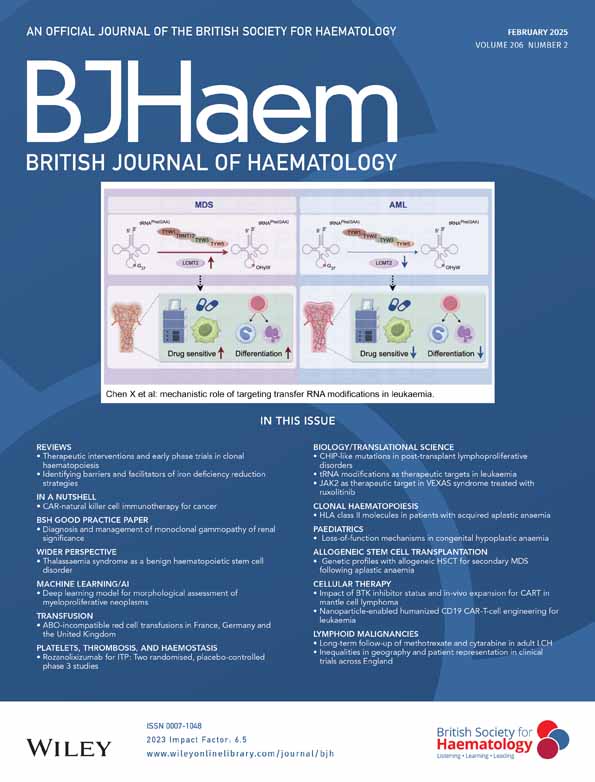CD71+ erythroid cells promote multiple myeloma progression and impair anti-bacterial immune response
[Correction added on 14 February 2025, after first online publication: The subcategory has been changed.]
Summary
Multiple myeloma (MM), one of the most frequent haematological malignancies, significantly increases the risk of bacterial infections due to treatment-related side effects, comorbidities and cancer-induced immune deficiencies. Recently, CD71+ erythroid cells (CECs) have been identified as key immunomodulators in neonates and cancer patients, but their role in MM progression remains unclear. Using a murine MM model, closely resembling human disease, we observed that MM progression is associated with anaemia and an increase in immature CECs, which are characterized by elevated arginase 2 (ARG2) expression. These MM-associated CECs suppress T-cell proliferation, contributing to impaired immune responses. Notably, ARG2 deficiency in mice led to slower MM progression and improved survival. Furthermore, MM-bearing mice exhibited higher susceptibility to Listeria monocytogenes infections, mirroring the increased infection risk in MM patients. Our findings suggest that ARG2-expressing CECs play a critical role in MM-associated immune suppression and infection susceptibility, pointing out ARG2 as a potential therapeutic target to enhance immune function and reduce infection risks in MM patients.
CONFLICT OF INTEREST STATEMENT
The authors declare no conflict of interest.
Open Research
DATA AVAILABILITY STATEMENT
All source data can be obtained from corresponding authors upon reasonable request.




